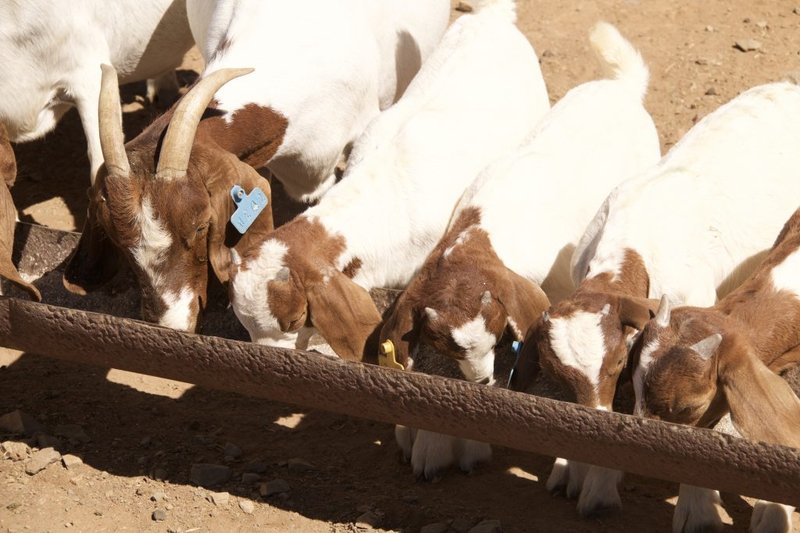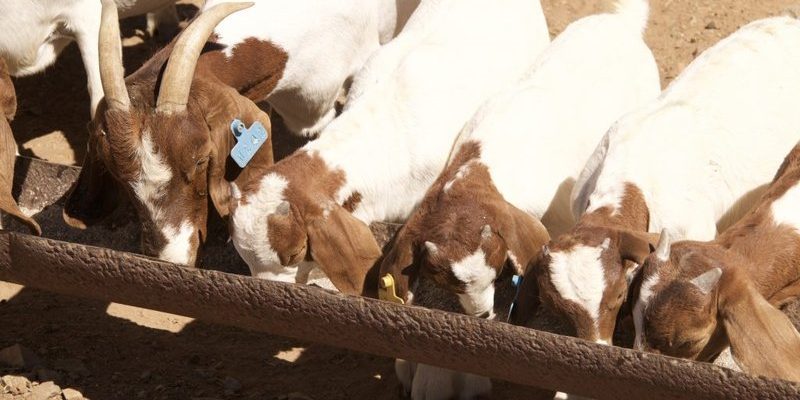
Feeding Boer goats isn’t just about tossing some hay in a trough. It involves understanding their specific dietary requirements. Think of it this way: if you only ate pizza every day, you’d miss out on the nutrients you need to feel your best. Similarly, Boer goats need a balanced diet that fulfills their needs for energy, protein, vitamins, and minerals. So, let’s explore what makes up that perfect goat diet and how you can support their nutritional needs.
Understanding Boer Goats’ Dietary Requirements
Boer goats are unique in their dietary needs compared to other breeds. They thrive on a mix of roughage and concentrates, which provide them with the necessary nutrients for growth and health. The primary components of their diet include hay, pasture, grains, and supplements.
– Roughage: This is essential for their digestive health. Good quality hay and pasture help maintain a healthy rumen. You might wonder, “What type of hay should I provide?” Alfalfa and clover hay are excellent choices because they’re high in protein and energy.
– Grains: While goats can get their energy from hay, adding grains like corn or oats can boost their nutritional intake, especially during critical growth phases. However, too much grain can lead to digestive issues, so it’s all about balance.
– Supplements: Boer goats also benefit from minerals and vitamins. You can find commercially available mineral blocks designed specifically for goats to ensure they get all the essential nutrients they need.
The Importance of Protein in Their Diet
Protein plays a key role in the growth and overall health of Boer goats. It’s like the building blocks they need to develop muscle and maintain their immune system. Young goats, especially kids, require higher protein levels to support their growth spurts.
– Quality Protein Sources: Look for high-quality protein sources like soybean meal or alfalfa hay. These sources provide the necessary amino acids that help in growth and development.
– Age Matters: Keep in mind that as Boer goats age, their protein needs will change. Pregnant or lactating (nursing) does, for instance, require more protein than maintenance goats.
– Signs of Protein Deficiency: If you notice your goats are losing weight, have poor coats, or show lethargy, it could be a sign of inadequate protein in their diet. Adjusting their feed can help address these issues.
Essential Minerals and Vitamins for Boer Goats
Vitamins and minerals are crucial for Boer goats’ health. They help with everything from bone development to immune function. Here’s what you should know:
– Calcium and Phosphorus: These minerals are vital for bone growth and overall health. Boer goats need a proper calcium to phosphorus ratio, typically around 2:1. Make sure they have access to mineral supplements that provide both.
– Salt: Goats have a natural craving for salt. Providing a salt lick can help ensure they get enough sodium, which is essential for various bodily functions.
– Vitamin A, D, and E: These vitamins are crucial for reproduction, vision, and overall health. Green pasture typically provides Vitamin A, while exposure to sunlight helps synthesize Vitamin D. Supplementation may be necessary in winter months when goats are less active outdoors.
Feeding Boer Goats at Different Life Stages
Just like kids need different foods than adults, Boer goats have unique nutritional needs at various life stages. Here’s how to tailor their diet:
– Kids: For weaned kids, a diet high in protein (around 16-18% protein) is necessary to support rapid growth. You can offer them a high-quality kid starter feed along with fresh hay and clean water.
– Pregnant and Lactating Does: Provide extra protein and energy for pregnant and lactating does. Consider a specially formulated goat feed designed for pregnant or nursing goats to support both the mother and her kids.
– Adult Goats: For adult Boer goats, you can switch them to a maintenance diet, which typically has lower protein levels (around 12-14%). This diet supports health without leading to unnecessary weight gain.
Hydration: The Overlooked Essential
Water is often the most overlooked aspect of goat nutrition. But just like any living creature, Boer goats need fresh, clean water available at all times. Proper hydration is crucial for digestion and overall health.
– Water Quality: Make sure the water is clean and free from contaminants. Goats can be particular about their drinking water, so they’re more likely to drink if it’s fresh.
– Temperature Considerations: Remember that goats can suffer from heat stress, especially in hot weather. Providing extra water and shade can help keep them comfortable.
– Signs of Dehydration: Watch for signs like dry mucous membranes, lethargy, or decreased appetite. If you notice these signs, make sure they drink enough water immediately.
Common Feeding Mistakes to Avoid
Even experienced goat owners can slip up when it comes to feeding. Here are some common mistakes to watch for:
– Overfeeding Grain: While grains can boost energy, too much can lead to obesity and digestive issues like acidosis. Stick to recommended amounts based on your goat’s weight and production needs.
– Neglecting Forage: Some people focus solely on grains and forget that goats need ample forage. Hay should be the foundation of their diet, with grains as a supplement.
– Ignoring Individual Needs: Each goat is unique. Monitor their condition and adjust their diet based on their activity level, age, and health status. What works for one goat might not be ideal for another.
Feeding Boer goats is a balancing act that requires some thought and attention. By understanding their specific nutritional needs—ranging from protein and minerals to hydration—you can create a diet that keeps them healthy and productive. Think of it like preparing a balanced meal for yourself; a little planning goes a long way!
Getting their diet right is essential for their growth, health, and overall well-being. If you stay vigilant and adapt your approach as needed, your Boer goats will thrive. So grab that coffee, roll up your sleeves, and get ready to provide the best nutrition for your furry friends!

